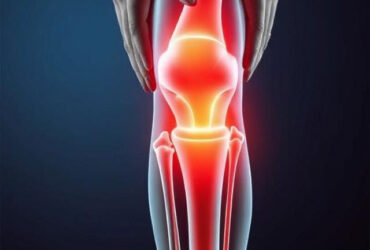1. Introduction
- What is Anxiety?
Anxiety is a natural response to stress and can be experienced by anyone. It is characterized by feelings of worry, nervousness, or fear that can affect daily life. While occasional anxiety is normal, excessive or chronic anxiety can interfere with daily functioning and may require attention.
2. Types of Anxiety Disorders
- Generalized Anxiety Disorder (GAD): Persistent and excessive worry about various life situations.
- Panic Disorder: Sudden and recurrent panic attacks, often accompanied by physical symptoms.
- Social Anxiety Disorder: Intense fear of social situations or being judged by others.
- Phobias: Irrational fear of specific objects or situations, such as heights, flying, or spiders.
- Post-Traumatic Stress Disorder (PTSD): Anxiety related to past traumatic experiences.
3. Common Symptoms of Anxiety
- Physical Symptoms:
- Rapid heartbeat
- Sweating
- Trembling
- Shortness of breath
- Dizziness or lightheadedness
- Emotional Symptoms:
- Constant worry or fear
- Feeling on edge or restless
- Difficulty concentrating
- Irrational thoughts or fears
- Behavioral Symptoms:
- Avoidance of certain situations
- Trouble sleeping
- Irritability
4. Causes of Anxiety
- Genetics: A family history of anxiety disorders may increase the risk.
- Brain Chemistry: Imbalance in neurotransmitters and brain activity may contribute to anxiety.
- Life Stressors: Major life changes, such as moving, divorce, or job-related stress, can trigger anxiety.
- Trauma or Abuse: Past traumatic experiences can lead to anxiety disorders.
- Health Conditions: Anxiety can also be linked to certain physical health issues, such as heart disease, diabetes, or thyroid problems.
5. Managing Anxiety
- Psychological Therapies:
- Cognitive Behavioral Therapy (CBT): A structured approach that helps identify and change negative thought patterns.
- Exposure Therapy: Gradual exposure to anxiety-inducing situations to reduce fear over time.
- Mindfulness and Relaxation Techniques: Breathing exercises, meditation, and yoga can help manage stress and reduce anxiety.
- Lifestyle Modifications:
- Exercise: Regular physical activity can reduce stress and anxiety levels.
- Healthy Diet: A balanced diet with plenty of vitamins and minerals can support mental health.
- Sleep Hygiene: Ensuring adequate and quality sleep is essential for emotional well-being.
- Medication:
- Antidepressants and anti-anxiety medications may be prescribed in severe cases to help manage anxiety symptoms.
6. When to Seek Help
- If anxiety is interfering with your daily activities or causing significant distress, it’s important to seek professional help. Anxiety can be managed with proper treatment and support.
7. Book an Appointment
- Need Help Managing Anxiety?
If you or someone you know is struggling with anxiety, we’re here to help. Contact us to schedule an appointment with our specialists. We have best psychiatrist in Nepal. - Online Appointment Booking






